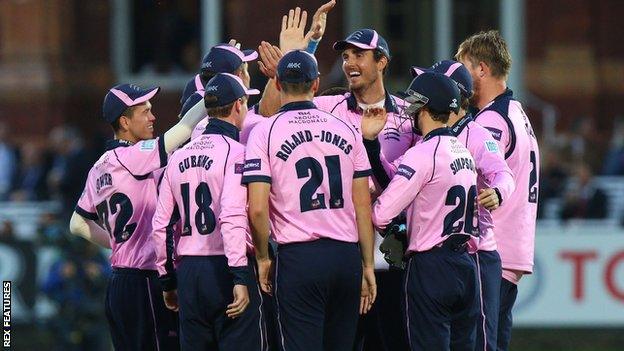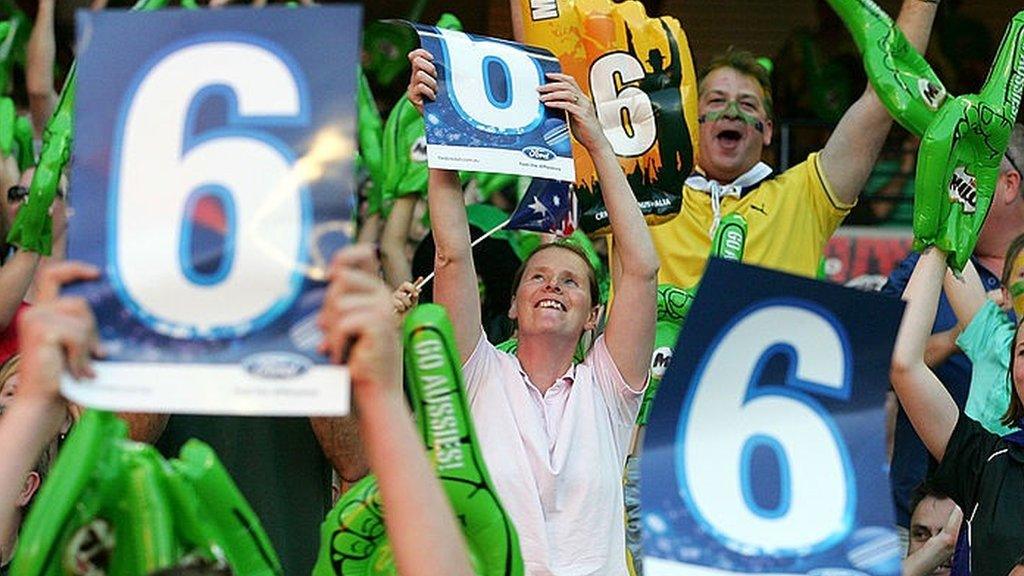Middlesex refuse to back rule change for ECB's city-based Twenty20 plan
- Published

Middlesex reached the quarter-finals of last season's T20 Blast
Middlesex have become the first county to refuse to support a rule change that would pave the way for a new city-based Twenty20 competition planned for 2020.
England and Wales Cricket Board (ECB) rules need to be altered to allow the removal of the right of all 18 counties to play in the new tournament.
The changes require the support of 31 out of 41 of the ECB's voting members.
"The financial impact on Middlesex is still very uncertain and contains great risks," chairman Mike O'Farrell said., external
"Whilst Middlesex is fully supportive of the creation of a new T20 tournament to drive the future of the game, we are unable to support this proposal at the current time.
"Middlesex has a unique position in playing at a ground [Lord's] that is likely to be a host venue at the tournament, yet not benefiting from the revenues associated with that status.
"We welcome the ECB's commitment to a further revision to its articles to provide the protections that we require but, until these commitments become legally binding, we cannot support the current change of articles of association."
The 41 voting members comprise the 18 first-class counties, 21 recreational boards, the Minor Counties Cricket Association, and MCC - owners of Lord's and therefore Middlesex's landlord.
A number of counties have come out in support of the proposals for the new tournament, with Derbyshire, Leicestershire, Somerset, Sussex and Yorkshire all announcing that they will back the ECB rule change, while others including Glamorgan, Hampshire and Warwickshire have been vocal in their support for a city-based competition.
Kent have asked their members and supporters to give them further feedback before making a decision, while Surrey director of cricket Alec Stewart has expressed concern over the details of the new event.
How the new competition works
Eight new teams playing 36 games over a 38-day summer window, with four home games per team
All games televised, with significant free-to-air exposure
No scheduling overlap with the existing T20 Blast competition
An Indian Premier League-style play-off system to give more incentive for finishing higher up the league
A players' draft, with squads of 15 including three overseas players
Counties guaranteed £1.3m
- Published28 March 2017

- Published6 April 2017

- Published4 April 2017

- Published30 March 2017

- Published29 March 2017
